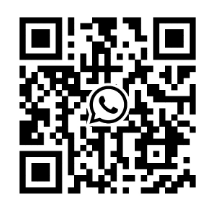| Antibacterial yarn authenticity identification method |
| Release time:2025-04-16 15:33:44 | Views: |
Antibacterial yarn authenticity identification methodI. Certification mark and test report verification
Genuine antimicrobial yarns should be labeled with national antimicrobial standards (e.g. GB/T 20944.3, FZ/T 73023) or international certificates (e.g. ISO 20743, AATCC 100) on the package or label. Some high-end products come with anti-counterfeiting labels or QR codes, which can be scanned to check the official certification information.
Ask for test reports issued by CMA/CNAS certified laboratories, focusing on the following indicators: Antibacterial rate (e.g. ≥90% for E. coli and Staphylococcus aureus); Washing resistance (AAA grade products need to pass 50 times washing test).
II. Physical Characteristics Observation and Testing
Natural antibacterial fibers (such as bamboo fiber, chitin fiber) feel smooth and have a natural luster, the surface has micro-fluff; Artificial antimicrobial yarn (such as silver ion antimicrobial fiber) may show metallic luster, even texture but hard touch.
Cut a small amount of yarn and light it on fire: Natural antimicrobial fiber burning residue gray-white powder, no odor; Chemical fiber antimicrobial yarn burns with black smoke and hard residue (such as containing silver ions, it may glow blue).
Soak the yarn in 40℃ warm water, add neutral detergent and scrub 5 times: Genuine antimicrobial yarn has no obvious pilling or fiber breakage after washing; Counterfeit products may have increased odor or decreased antibacterial performance. III. Professional testing aids
Contact the yarn sample with common bacteria (e.g. E.coli) for 24 hours: Genuine antimicrobial yarn can be seen obvious inhibitory circle around the yarn, and the colony reduction rate is ≥70%; Counterfeit products have no inhibitory circle or no obvious change in colonies.
Detect the composition of yarn by infrared spectrometer: Genuine products can detect silver ions, chitosan and other antibacterial active substances; Counterfeit products may only contain ordinary fibers or ineffective antibacterial agent. IV. Identification of purchase channels and packaging
Imported antibacterial yarn packaging should be special kraft boxes for foreign trade, including brand identity, color number, batch number and other coated paper stickers; Spool labels need to be printed with industrial-grade printing presses, clear font without burrs.
Priority should be given to brands that provide anti-bacterial grade labeling (such as AAA grade), and avoid unqualified small workshop products. Summarize To recognize the authenticity of antibacterial yarn, we need to integrate the authentication verification (test report, anti-counterfeiting mark), physical testing (combustion, washing resistance) and professional testing (strain culture, composition, etc.). Professional testing (strain culture, composition analysis). It is recommended to give preference to products endorsed by CMA/CNAS certified laboratories and clearly labeled. |




+86-573-85157117
JWY@xiangii.com
No. 899 Chengxi Road, Pinghu City, Jiaxing City, Zhejiang Province,China,314211
